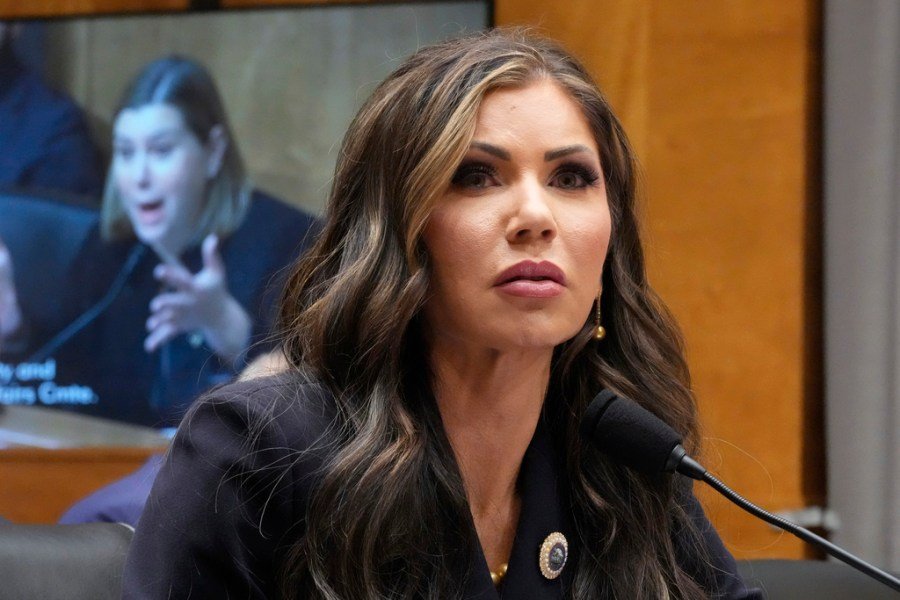Many were looking for signs at Donald Trump’s inauguration on Monday, desperately searching for some indication as to what his second term might look like. They pored over his inauguration speech. They dissected his comments at Capital One Arena. They studied his executive order marathon from the Oval Office.
They were all looking in the wrong place.
The inaugural events were important, and they certainly merit our attention. But the inauguration was pretty much what everyone expected. The day is, almost by definition, fairly well-scripted.
If you want to know what Trump 2.0 will look like, the better place to have been looking over the last few weeks was the Senate confirmation hearings. Because what we have been seeing there is a dramatic departure, not only from “typical” Senate hearings, but also from what the hearings looked like back in Trump 1.0. And how they are different speaks volumes about what the second Trump administration will look like.
Back in 2017, I was nominated as director for the Office of Management and Budget, a Senate-confirmed position. So, I had to endure the humiliation masquerading as the “advise and consent” clause of the Constitution. While the confirmation process hasn’t changed much since then — indeed, it may even have gotten worse — how the people now up for confirmation have responded has changed dramatically.
In 2017, Trump nominees were essentially told to grin and bear it. If some senator with a reputation for drinking or womanizing asks you about your behavior at a Christmas party in the 1990s, you should respond respectfully, even meekly.
The instructions were simple: keep your mouth shut, don’t push back, smile politely, keep quiet, and just get to the vote. And whatever you do, don’t make news.
Clearly, the instructions this time around are dramatically different.
For example, Trump’s nominee to lead the Department of Homeland Security, Gov. Kristi Noem (R-S.D.), had no difficulty pushing back against Sen. Richard Blumenthal (D-Conn.) over so called “family separation.” In response to Blumenthal’s half-question, half-campaign speech, Noem responded that “The Trump Administration never had a family separation policy; they had a zero-tolerance policy….” She then turned the tables, pointing out that the real issue wasn’t so-called family separation but “the over 300,000 children that went missing during the Biden administration.”
Russ Vought (Trump’s pick for the Office of Management and Budget) and Pete Hegseth (his pick for Defense secretary) similarly refused to be pushed around, regularly offering full-throated defenses of likely Trump policies. Even the otherwise mild-mannered Scott Bessent (Treasury secretary nominee) got in on the action. When Sen. Ron Wyden (D-Ore.) tried to make the case that the U.S. and China were engaged in some sort of “arms race on clean energy,” Bessent was quick to set him straight. “Senator… China will build 100 new coal plants this year. There is not a clean energy race. There is an energy race.”
But if there was one nominee who was the poster child for a new approach from the next Trump Cabinet, it was Pam Bondi, Trump’s nominee for attorney general.
When pressed by Sen. Sheldon Whitehouse (D-R.I.) about a so-called “enemies list,” she turned the discussion to the story of an FBI agent who falsified a FISA warrant as part of the hoax Russia-collusion investigation against Trump.
When he baited her by asking if it was appropriate to “start with a name and look for a crime,” she reminded him that “[t]hat is the whole problem…with what has been happening with Donald Trump … starting back in 2016.”
Whitehouse wasn’t the only recipient of Bondi’s fire and brimstone. Sen. Adam Schiff (D-Calif.) asked about presidential pardons — then answered the question for her. Her response was just as direct as his question was misguided: “I’m not going to mislead this body nor you … you were censured by Congress for comments just like this.”
When he tried to get her to commit to not destroying evidence from the Jan. 6 committee, her response was dramatic: “Are you frightened because evidence (that was false) was destroyed against President Trump? … I can’t believe you’re asking such a question.”
It’s hard to imagine people like Jeff Sessions or Rex Tillerson giving such answers.
In the first term, the Trump White House was aggressive and unbowed when it came to policy. People like senior adviser Steven Miller and Domestic Policy Council director Joe Grogan were never shy about pushing the Trump agenda. But at times, it was apparent that those out in the agencies were more timid.
And as much time and energy as any White House spends promoting its agenda, it cannot change the course of the massive federal government by itself. Any administration needs its Cabinet secretaries to be working every day as a force multiplier for what the White House is pushing.
In the first Trump administration, most of the team bought into the Trump agenda, but not all. Most were willing to go on television and promote that agenda, but not all. Most were deeply committed to draining the swamp, deregulating the bureaucracy, and getting government off the backs of ordinary citizens, but not all.
If these Senate hearings are any indication, this time around is going to be different. And that speaks just as loudly, if not louder, than any executive order or inauguration speech.
Mick Mulvaney, a former congressman from South Carolina, is a contributor to NewsNation. He served as director of the Office of Management and Budget, acting director of the Consumer Financial Protection Bureau and White House chief of staff under President Donald Trump.


